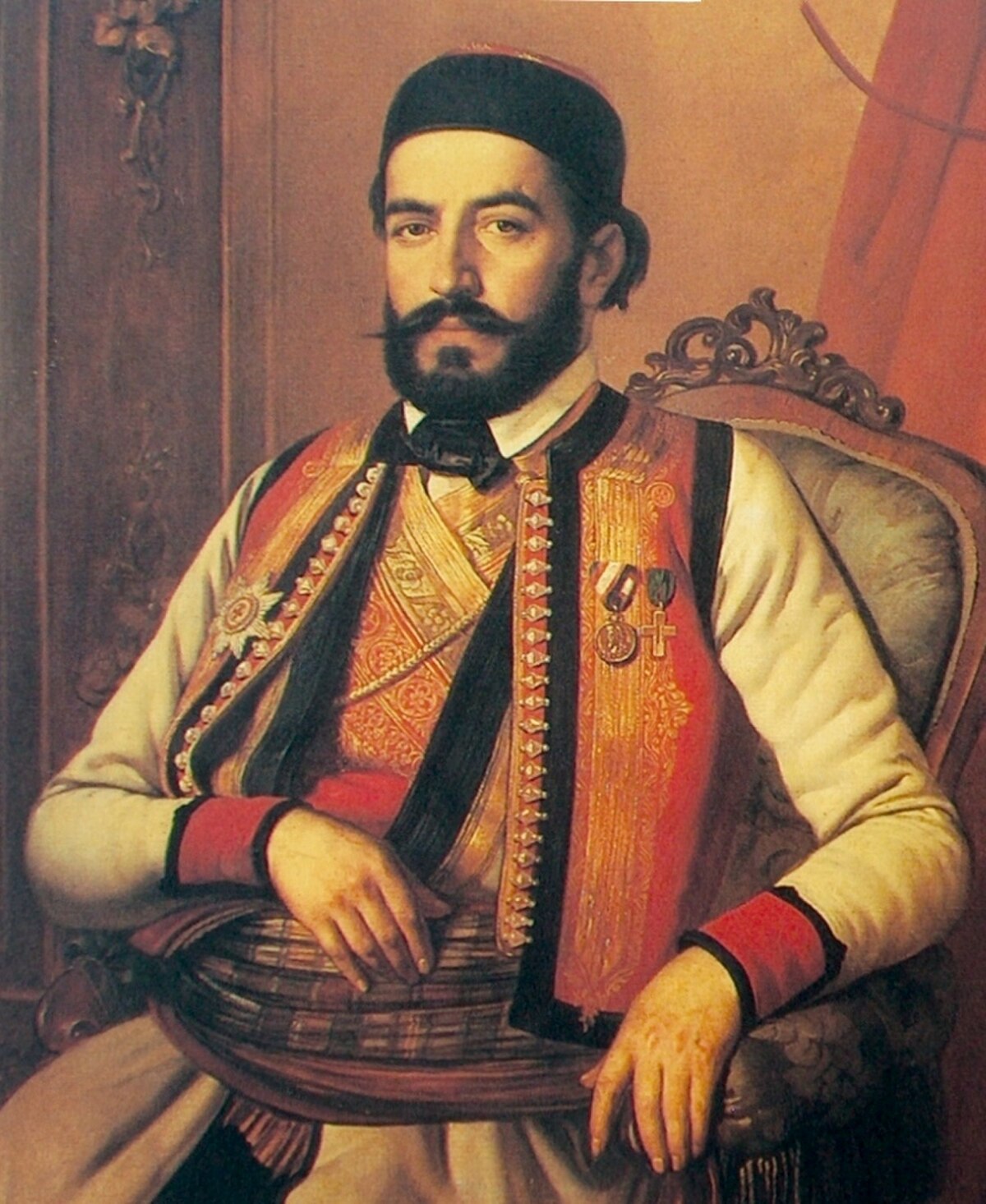
Petar II Petrović-Njegoš
MontenegroFollowing the death of Petar I, his 17-year-old nephew, Rade Petrović, became Metropolitan Petar II. By historical and literary consensus, Petar II, commonly called "Njegoš", was the most impressive of the prince-bishops, having laid the foundation of the modern Montenegrin state and the subsequent Kingdom of Montenegro. He was also an acclaimed Montenegrin poet.
A long rivalry had existed between the Montenegrin metropolitans from the Petrović family and the Radonjić family, a leading clan which had long vied for power against the Petrović's authority. This rivalry culminated in Petar II's era, though he came out victorious from this challenge and strengthened his grip on power by expelling many members of the Radonjić family from Montenegro.
In domestic affairs, Petar II was a reformer. He introduced the first taxes in 1833 against stiff opposition from many Montenegrins whose strong sense of individual and tribal freedom was fundamentally in conflict with the notion of mandatory payments to the central authority. He created a formal central government consisting of three bodies, the Senate, the Guardia and the Perjaniks. The Senate consisted of 12 representatives from the most influential Montenegrin families and performed executive and judicial as well as legislative functions of government. The 32-member Guardia traveled through the country as agents of the Senate, adjudicating disputes and otherwise administering law and order. The Perjaniks were a police force, reporting both to the Senate and directly to the Metropolitan.
Before his death in 1851, Petar II named his nephew Danilo as his successor. He assigned him a tutor and sent him to Vienna, from where he continued his education in Russia. According to some historians Petar II most likely prepared Danilo to be a secular leader. However, when Petar II died, the Senate, under influence of Djordjije Petrović (the wealthiest Montenegrin at the time), proclaimed Petar II's elder brother Pero as Prince and not Metropolitan. Nevertheless, in a brief struggle for power, Pero, who commanded the support of the Senate, lost to the much younger Danilo who had more support among the people. In 1852, Danilo proclaimed a secular Principality of Montenegro with himself as Prince and formally abolished ecclesiastical rule.
